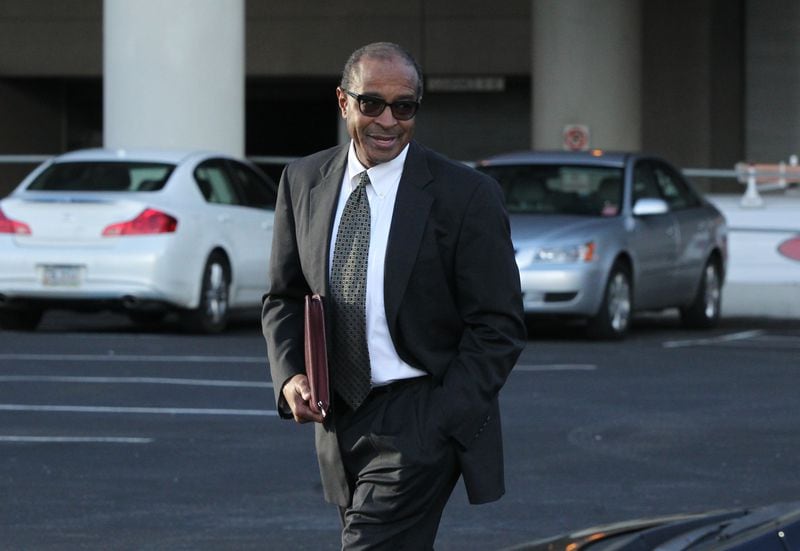UPDATED: Who pocketed the $1 million+ in bribes an Atlanta contractor paid to get contracts? That's the question everyone is asking. But the other big question is how contracts could be steered to favored contractors, given the various safeguards the city has in place to prevent fraud. Some new clues emerged this week.
Credit: Lois Norder
Credit: Lois Norder
One answer: Contractor Elvin "E.R." Mitchell, who has admitted to paying more than $1 million in bribes, was paid millions to do emergency work. So that work - 10 payments over six years - skipped the usual competitive bidding and evaluation process. The city's chief procurement officer has the power to make or authorize others to make emergency purchases when there is a threat to public health, welfare or safety under emergency conditions.
And if the emergency occurs after office hours and requires immediate action, or if it isn't "convenient" to reach the chief procurement officer, the official in charge of any city agency can make the purchase. When the mayor declares an emergency, as he did during the 2014 Snowjam where Mitchell did some work, other rules may apply.
However, federal officials haven't said if emergency services are the focus of their investigation in the Mitchell case. And when construction company owner Charles P. Richards Jr., pleaded guilty Thursday to paying over $185,000 to obtain city contracts, his attorney said he obtained both emergency work and regularly bid contracts.
Even competitive sealed bidding can be rigged, fraud experts say. And they say that more out-sourcing of government work has led to more fraud. The experts list these common ways that bribery or kickback schemes can corrupt the competitive bidding process:
- Purchases are split to stay under amount that requires competitive bids. Atlanta has a $20,000 threshold, making it hard to divvy up big contracts to that small of chunks.
- The briber works with insiders to draft specifications to favor his firm or the insider finds that the briber is the only one who can provide the needed work.
- Bids aren't advertised widely.
- Bid information is leaked to the briber.
- Qualified bidders are excluded or unqualified bidders are allowed to compete.
- The contractor who pays a bribe knows that if he submits a low-ball bid, changes will be approved that boosts the price. In the Richards case, records show one of his contracts was amended 20 times, including 14 times when new work and new funding were added. However, his bid on the initial contract was among the highest. His company got work only after some other bidders were disqualified, and the city then divided work among five companies, including Richards', the AJC found.
- The contractor doesn't do all the work required or cuts corners, but gets paid anyway, kicking back money to the insider who OKs the job.
You can see the city's safeguards by clicking here: http://bit.ly/2kSEoan
The city also has to abide by state law on public works bidding. If you want to do your own detective work on the case, review that law by clicking here: http://bit.ly/2lhnCTz
Read about former Atlanta officials and bribery schemes by clicking here: http://bit.ly/2kx57WO
Details about what actually happened in Atlanta may be buried in the more than 1 million documents the city released on the federal bribery probe. The AJC has a team of reporters sorting through the records.
About the Author








